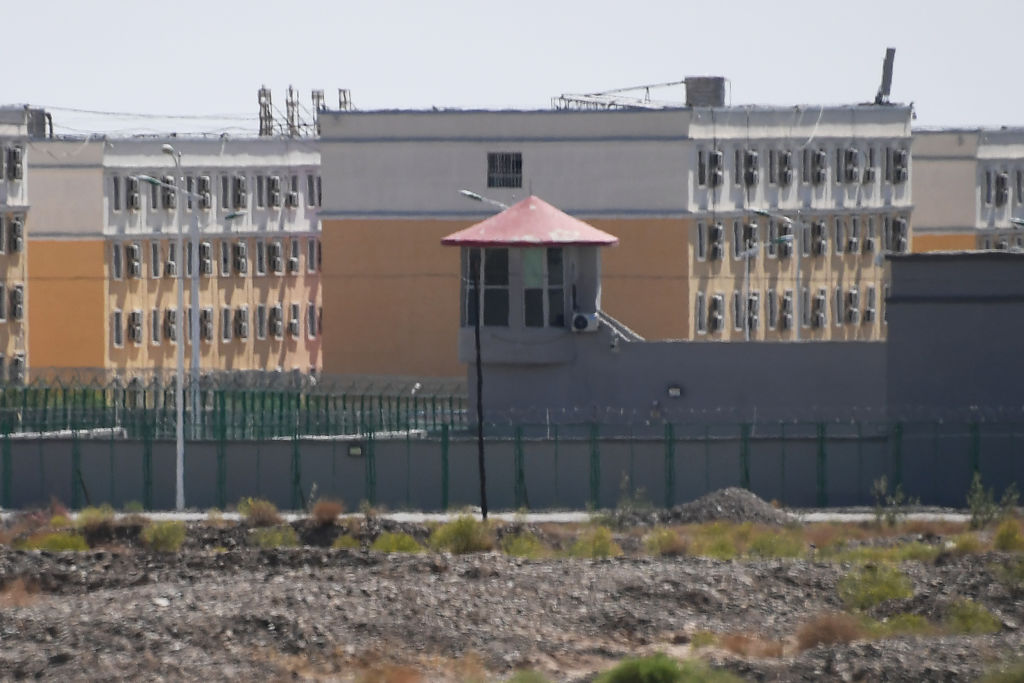The New York Times report on China's mass detention of Muslims seems to have broken through Beijing's internet firewall


A free daily email with the biggest news stories of the day – and the best features from TheWeek.com
You are now subscribed
Your newsletter sign-up was successful
The Great Firewall may have been breached.
Beijing doubled down Monday after The New York Times published a report on over 400 leaked documents that provided a look into China's mass detention of Muslims in the Xinjiang region, though the government didn't dispute the authenticity of the documents.
"It is precisely because of a series of preventative counterterrorism and de-extremism measures taken in a timely manner that Xinjiang, which had been deeply plagued by terrorism, has not had a violent terrorist incident for three years," said Geng Shuang, a spokesman for China's Ministry of Foreign Affairs. Geng added that the Times took things out of context in an attempt to "smear and discredit China's antiterrorism and de-extremism capabilities."
The Week
Escape your echo chamber. Get the facts behind the news, plus analysis from multiple perspectives.

Sign up for The Week's Free Newsletters
From our morning news briefing to a weekly Good News Newsletter, get the best of The Week delivered directly to your inbox.
From our morning news briefing to a weekly Good News Newsletter, get the best of The Week delivered directly to your inbox.
But aside from Geng's comments, the Times reports that Chinese state media said little else about the issue, which is not surprising given the sensitive nature of the issue. But there were signs that at least some aspects of the leak snuck past Beijing's internet firewall, which blocks access to the Times. One user on Chinese social media platform Weibo reportedly posted about Wang Yongzhi, an official cited in the report who initially helped implement China's harsh measure, but eventually ordered the release of more than 7,000 detention camp inmates before he was arrested. "History will not forget this person and this page of paper," the Weibo user wrote, indicating that the documents might have made their way through. Read more at The New York Times.
A free daily email with the biggest news stories of the day – and the best features from TheWeek.com
Tim is a staff writer at The Week and has contributed to Bedford and Bowery and The New York Transatlantic. He is a graduate of Occidental College and NYU's journalism school. Tim enjoys writing about baseball, Europe, and extinct megafauna. He lives in New York City.
-
 Tourangelle-style pork with prunes recipe
Tourangelle-style pork with prunes recipeThe Week Recommends This traditional, rustic dish is a French classic
-
 The Epstein files: glimpses of a deeply disturbing world
The Epstein files: glimpses of a deeply disturbing worldIn the Spotlight Trove of released documents paint a picture of depravity and privilege in which men hold the cards, and women are powerless or peripheral
-
 Jeff Bezos: cutting the legs off The Washington Post
Jeff Bezos: cutting the legs off The Washington PostIn the Spotlight A stalwart of American journalism is a shadow of itself after swingeing cuts by its billionaire owner
-
 Nobody seems surprised Wagner's Prigozhin died under suspicious circumstances
Nobody seems surprised Wagner's Prigozhin died under suspicious circumstancesSpeed Read
-
 Western mountain climbers allegedly left Pakistani porter to die on K2
Western mountain climbers allegedly left Pakistani porter to die on K2Speed Read
-
 'Circular saw blades' divide controversial Rio Grande buoys installed by Texas governor
'Circular saw blades' divide controversial Rio Grande buoys installed by Texas governorSpeed Read
-
 Los Angeles city workers stage 1-day walkout over labor conditions
Los Angeles city workers stage 1-day walkout over labor conditionsSpeed Read
-
 Mega Millions jackpot climbs to an estimated $1.55 billion
Mega Millions jackpot climbs to an estimated $1.55 billionSpeed Read
-
 Bangladesh dealing with worst dengue fever outbreak on record
Bangladesh dealing with worst dengue fever outbreak on recordSpeed Read
-
 Glacial outburst flooding in Juneau destroys homes
Glacial outburst flooding in Juneau destroys homesSpeed Read
-
 Scotland seeking 'monster hunters' to search for fabled Loch Ness creature
Scotland seeking 'monster hunters' to search for fabled Loch Ness creatureSpeed Read
